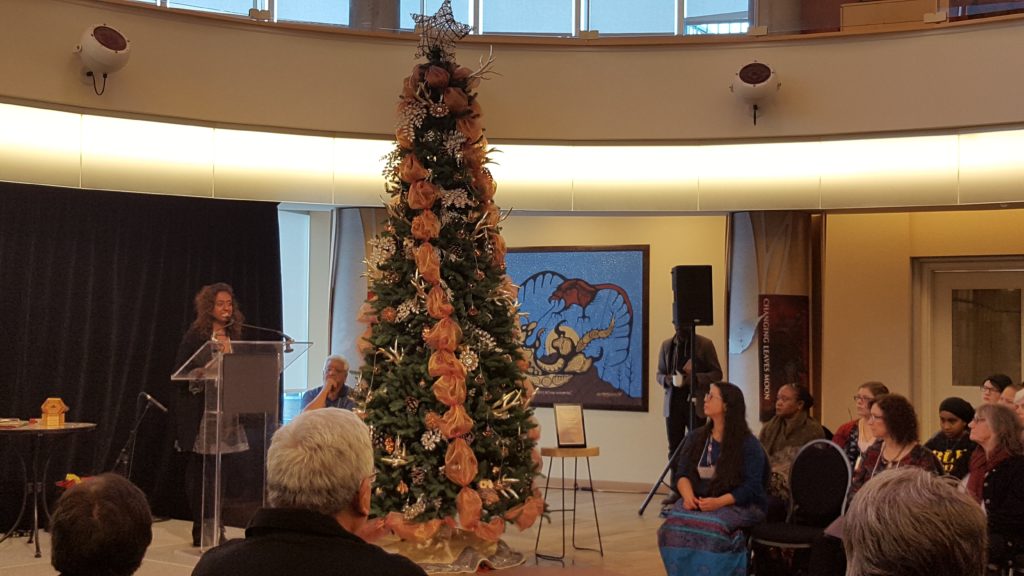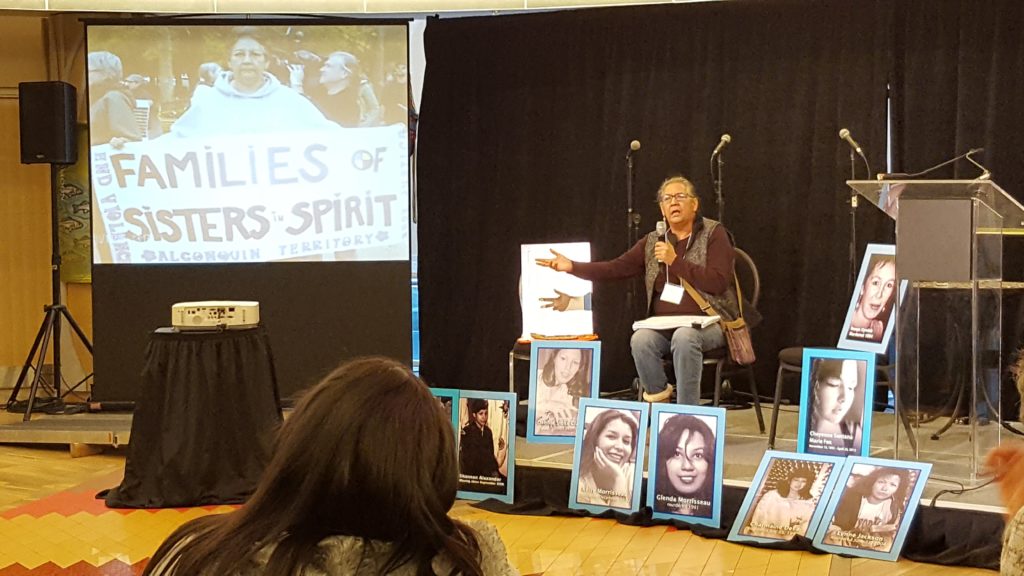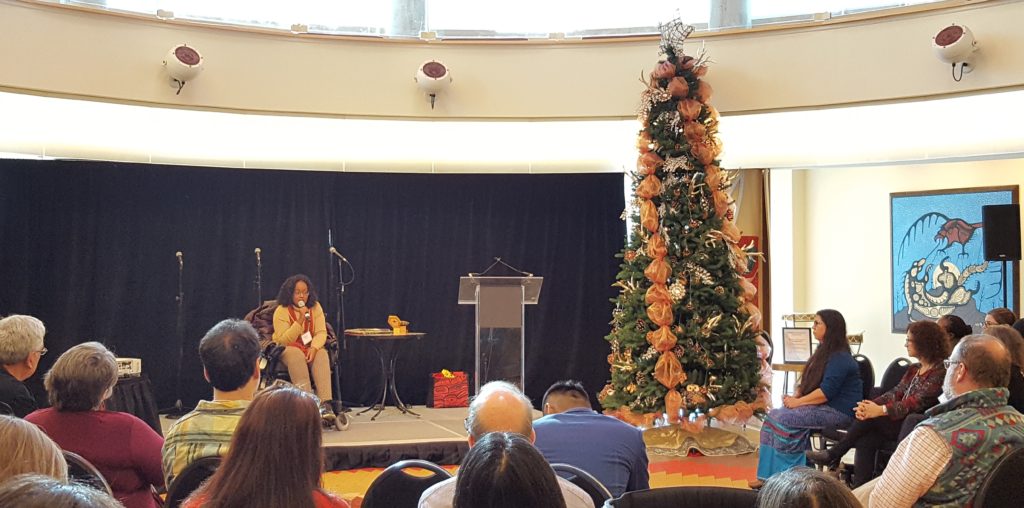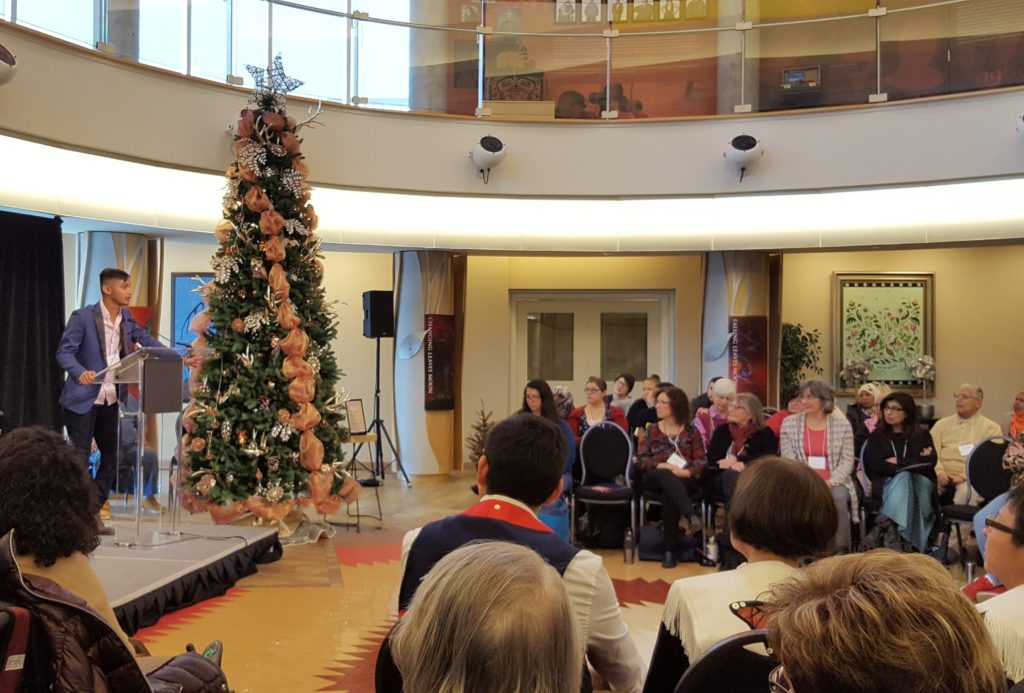Reflections on a Gathering of Indigenous, Refugee and People with Disabilities in Ottawa to End Violence and Poverty
It occurred to us, as we put together our Solidarity Symposium bringing together activists and advocates working with diverse marginalized populations, that solidarity will require breaking silos and borders of exclusion, oppression and exploitation. However, the Symposium held on December 4th, 2017, illuminated a learning beyond the need for working together across boundaries of exclusion. It made clear to us as frontline service providers, researchers, community members with lived experiences, and policy makers that solidarity is the basis of social change.

The day-long event held at the Wabano Centre for Aboriginal Health in Ottawa, felt like the appropriate time and place to reflect on our struggles as indigenous, migrant peoples and people with disabilities. We were held by the teachings and guidance of the Indigenous knowledge of the Centre, and our partners, speakers and elder who took part in the creation of the event. Indigenous speakers and performers included Patty Musgrave, a traditional Indigenous drummer from the Mi’kmaq Territory; Tzo’kam, a west coast Indigenous singing group; Bridget Tolley, an Algonquin grandmother and activist of the Kitigan Zibi reserve. They spoke to a common message that struggles are interconnected, resilience is intergenerational and that resistance is ongoing.

The event, spearheaded by IRIS and its national partners, brought together Indigenous, refugee, and people with disabilities, activists, community workers and artists from across Canada to learn and strategize on how to address the high rates of violence and poverty that all these groups experience. Doris Rajan, Director of Social Development at IRIS explains:
It is just time. For decades, these populations have worked hard fighting against poverty and violence and although great work has been done, huge problems remain. At times, it feels like things are even getting worse. This day is about breaking out of our silos and beginning the process of thinking and strategizing together.
Doris expands on this in her opening words explaining that in order to counter-act oppression and marginalization in communities, we need to expand our vision of what is possible.
In the morning, the performances and presentations addressed the question of how we learn about what is possible. The performance by Caliban Arts Theater based on Frantz Fanon’s book, The Wretched of the Earth; Ahmed Hashim Ullah’s words as a Rohingya refugee speaking about the crisis taking place right now in Myanmar; and Sarah Jama’s powerful speech about her experiences learning to advocate for herself and others as a young racialized disability activist; highlighted that imagining a new world is only possible when we work in solidarity with one another.

The afternoon presented us with the possibilities for solidarity; Dr. Pablo Idahosa’s talk on Development, Displacement, and Inequality touched on various strategies and social movements that worked together to address structural and systemic oppression and marginalization; Haneen Biladi’s performance addressed questions of land and belonging shared with Indigenous people of Canada; Michele Macauley and Samantha Gregory’s personal stories showed common experiences in resisting violence as women with intellectual disability and mental health. The final performance by Bucko left us reflecting about oppression as a common experience built into our systems and institutions.

An engaging drum performance by Baobab Youth Performers led us into a food and wine reception to conclude the day. To relive the event through pictures and videos that we posted including our Facebook Live feed, please follow us on Facebook and Twitter.
Stay tuned for a video of the event, which will include performances, speeches, and guest interviews.
Summary of Key Messages from the Symposium:
- Together we can overcome exclusion and isolation.
- We are interconnected.
- Solidarity is the basis of social change.
List of IRIS’ National Partners at the Symposium:
- Canadian Association for Community Living
- Warriors Against Violence – Vancouver
- Inland Refugee Society of B.C.
- Native Women’s Resource Centre of Toronto
- Across Boundaries – An Ethno-Racial Mental Health Centre
- Inclusion Regina
- Saint John Human Development Council
For more information, please contact Doris Rajan, Director of Social Development at IRIS, at 416-409-7025 or d.rajan@irisinstitute.ca.
![]()
